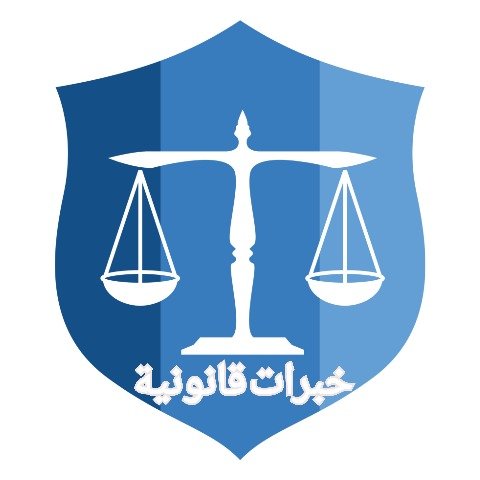Best Faith-Based Law Lawyers in Iraq
Share your needs with us, get contacted by law firms.
Free. Takes 2 min.
Or refine your search by selecting a city:
List of the best lawyers in Iraq
About Faith-Based Law in Iraq
Faith-Based Law in Iraq is predominantly influenced by Islamic law (Sharia), which plays a significant role in the country’s legal system. While Iraq's legal framework comprises a mix of civil law and religious provisions, Sharia significantly impacts family law, personal status issues, and other areas covered by faith-based regulations. Because of this integration, the legal landscape can be complex, requiring thoughtful navigation by those seeking to understand or practice within it.
Why You May Need a Lawyer
Individuals may require legal assistance in Faith-Based Law for various reasons. Common situations include marriage and divorce proceedings, which are governed by personal status laws. Inheritance cases also demand an understanding of Sharia, which outlines specific guidelines on shares for heirs. Legal support is invaluable in navigating the property distribution, custody disputes, and instances of family conflict where faith-based regulations apply. Additionally, organizations with a religious foundation, such as charities and educational entities, often need guidance on compliance with faith-based legal standards.
Local Laws Overview
In Iraq, key aspects of the local laws relevant to Faith-Based Law largely relate to personal status, family, and inheritance matters governed by the Personal Status Law. This law includes marriage norms, divorce conditions, and child custody regulations that adhere to Islamic principles. Marriage contracts, maintenance rights, and obligations following separation are predefined under religious law. Inheritance law is primarily Sharia-based, dictating specific rules regarding how estate and assets should be divided among relatives based on fixed shares.
Frequently Asked Questions
How does marriage registration work under Faith-Based Law in Iraq?
Marriage in Iraq must be registered with the civil authorities. The process involves complying with both civil requirements and religious traditions according to the belief system of the individuals involved.
What is the role of Sharia in inheritance cases?
Sharia outlines precise inheritance shares for family members, emphasizing specific portions for siblings, parents, and children. Non-compliance can lead to disputes that require legal intervention.
Can women initiate divorce proceedings?
Yes, women in Iraq can initiate divorce proceedings under specific circumstances defined by Islamic law, such as harm, abandonment, or failure to provide maintenance.
What legal rights do children have in custody cases?
Child custody is determined based on the child's welfare, with preference often given to the mother up to a certain age, according to the Personal Status Law under Islamic guidelines.
How are disputes in marriage settlements addressed?
Disputes in marriage settlements are often resolved either through legal mediation provided by family courts or, if necessary, through formal litigation adhering to faith-based regulations.
Does Faith-Based Law apply to non-Muslims in Iraq?
While the majority faith influences personal laws, non-Muslim groups have specific provisions allowing them to adhere to their own personal status laws for issues like marriage and divorce.
How does Islamic law address business and finance agreements?
While business and finance are mostly governed by civil law, Islamic principles prohibit usury, and there are models for Islamic finance that adhere to religious regulations.
What are my legal options in case of domestic violence?
In cases of domestic violence, individuals are encouraged to seek help from legal professionals who can guide them through complaints and protective measures according to both personal status and civil laws.
How can faith-based institutions ensure compliance with Iraqi law?
Faith-based institutions should consult legal experts who specialize in both civil and religious law to ensure they meet regulatory requirements and appropriately manage operations within legal frameworks.
Is there legal support for drafting wills under Faith-Based Law?
Yes, individuals often seek legal assistance to draft wills in accordance with Sharia to ensure their estate is distributed according to religious guidelines after their passing.
Additional Resources
For further assistance, individuals can reach out to the Iraqi Lawyers Syndicate which offers guidance on accessing legal professionals. Educational institutions such as the Islamic University of Iraq provide insights and resources on Islamic law. Legal support organizations and local NGOs often offer advice and representation in family and personal status matters.
Next Steps
If you require legal assistance in Faith-Based Law in Iraq, the first step is to consult with a lawyer who specializes in this field. You can search for experienced professionals via local directories or through referrals from trusted community organizations. Preparing any relevant documents and a clear understanding of your legal issue will also help streamline the process. Ensure that your lawyer provides comprehensive advice reflecting both civil and Islamic law standards. Finally, consider additional remedies such as mediation or alternative dispute resolution which may be available depending on your specific circumstances.
Lawzana helps you find the best lawyers and law firms in Iraq through a curated and pre-screened list of qualified legal professionals. Our platform offers rankings and detailed profiles of attorneys and law firms, allowing you to compare based on practice areas, including Faith-Based Law, experience, and client feedback.
Each profile includes a description of the firm's areas of practice, client reviews, team members and partners, year of establishment, spoken languages, office locations, contact information, social media presence, and any published articles or resources. Most firms on our platform speak English and are experienced in both local and international legal matters.
Get a quote from top-rated law firms in Iraq — quickly, securely, and without unnecessary hassle.
Disclaimer:
The information provided on this page is for general informational purposes only and does not constitute legal advice. While we strive to ensure the accuracy and relevance of the content, legal information may change over time, and interpretations of the law can vary. You should always consult with a qualified legal professional for advice specific to your situation.
We disclaim all liability for actions taken or not taken based on the content of this page. If you believe any information is incorrect or outdated, please contact us, and we will review and update it where appropriate.
Browse faith-based law law firms by city in Iraq
Refine your search by selecting a city.










